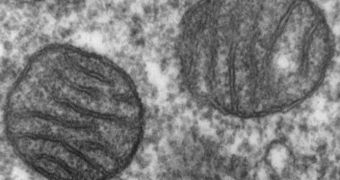A group of scientists announce the development of a new method of forcing cancer cells to destroy themselves. This advancement could be used to develop new types of therapies against various forms of cancer. The method relies on affecting the mitochondria of tumor cells.
Mitochondria, colloquially referred to as the power plants of the cells, are the structures responsible for converting glucose and other chemicals into energy units, or adenosine triphosphate (ATP) molecules.
Without this molecule, no operations can be completed inside cells. As such, the mitochondria is one of the most mysterious and critically-important organelles in any cell. Even cancer cells – known for their ability to adapt to attacks – cannot live without ATP.
The investigation, carried out by experts at the Wistar Institute, demonstrated that using a combination of two new drugs, both of which are still in development and testing, can quickly destroy cancer cells.
Gamitrinib is a chemical that is currently part of an advanced therapy against cancer. It has only undergone moderate studies, but it shows great promise for the future. The drug is the first in the combo to be administered to patients.
Once this step is completed, the tumor cells become significantly more sensible to the actions of the second drug, which is called TRAIL. The latter is also being tested at this point as part of another form of therapy against the same array of conditions.
“We found that a low dose of Gamitrinib makes cancer cells susceptible to TRAIL, bypassing many of the mechanisms tumors use to survive,” explains the senior author of the new study, Dario Altieri.
“Here we have found a new way to combine cancer therapies, one that could be applied to treating many types of cancer because both of these drugs target different mechanisms of tumor cell survival that revolve around mitochondria,” he adds.
The scientist holds an appointment as the Robert and Penny Fox Distinguished Professor at Wistar and also as the director of The Wistar Institute Cancer Center. Details of the research appear in the April issue of the esteemed Journal for Clinical Investigation.
“When tumor cells are confronted with lower concentrations of Gamitrinib, they mount a stress-related defensive system, essentially eating damaged mitochondria and altering how genes are turned on and off to compensate for induced defects in the mitochondria,” Altieri goes on to say.
“This process naturally suppresses Nuclear Factor-kappa Beta, a protein that prevents apoptosis from happening. Ironically, it's this very defensive measure that we can exploit in killing tumor cells,” he concludes.

 14 DAY TRIAL //
14 DAY TRIAL //